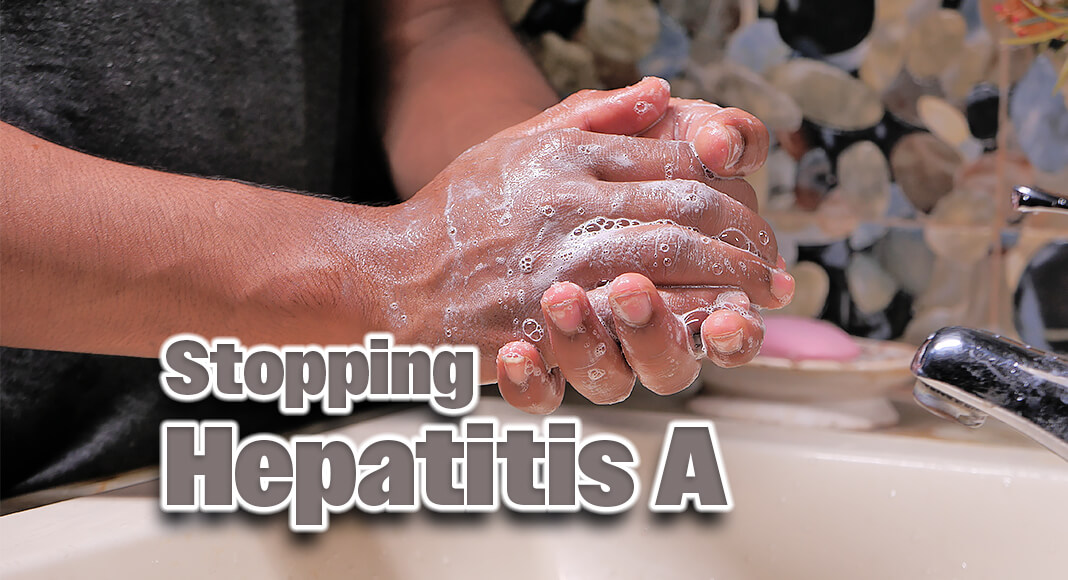
Mega Doctor News
Cedars Sinai
As Los Angeles grapples with a communitywide outbreak of the highly infectious virus hepatitis A, most adults might not be doing the one, simple thing that can help keep them safe from the virus—washing their hands.

“Many adults do not routinely wash their hands after visiting public places where they come in contact with a wide variety of germs from hundreds, if not thousands, of strangers, or even after using the bathroom,” said infectious disease specialist Soniya Gandhi, MD, MPH, associate chief medical officer and senior vice president of Medical Affairs at Cedars-Sinai Medical Center.
In fact, almost half of adults in the U.S. (48%) do not to wash their hands after visiting a grocery store, restaurant or even a hospital, according to a recent survey from the National Foundation for Infectious Diseases. Estimated rates of hand-washing worldwide after using the toilet are even lower—only 19%, according to the Centers for Disease Control and Prevention.
In addition to getting vaccinated—the best way to prevent hepatitis A, according to physicians—thoroughly washing hands with soap and water before eating or preparing food and after using the bathroom is a key way people can protect themselves from the virus. The Cedars-Sinai Newsroom spoke with Gandhi about how hepatitis A spreads and why good hand hygiene is a critical tool for avoiding the virus and a host of other infectious diseases.
How is hepatitis A transmitted?
Hepatitis occurs when the liver becomes inflamed, and it’s most often caused by one of three viruses: hepatitis A, B or C. Each of these viruses spreads in different ways. Hepatitis A is present in the stool and blood of infected individuals and typically spreads through person-to-person contact or by eating or drinking contaminated food or drink. Food can become contaminated with the virus at any point before it’s eaten—when it’s growing, harvested, prepared or served.
Why is hepatitis A so infectious?
An infected person can spread the virus—even before they feel sick—by not washing their hands after using the toilet and then touching food that another person later eats. Exposure to even a small amount of the virus can cause an infection, and the virus can survive on surfaces for up to a few months. Not all infected individuals experience symptoms, though adults are more likely to have symptoms than children, and symptoms can take anywhere from two to seven weeks to develop.
What are the signs and symptoms of a hepatitis A infection?
Because the liver processes nutrients, filters the blood and fights infections, symptoms of an infection will be related to the organ struggling to perform those functions. Signs of a hepatitis A illness can include dark urine, pale stools and jaundice—a yellowing of the skin and whites of the eyes—as well as common flu-like symptoms: fever, fatigue, nausea, vomiting and diarrhea. Infections are usually mild, lasting a few weeks to several months. But symptoms sometimes can last up to six months. In rare cases, hepatitis A can cause liver failure and even death.
How can you avoid hepatitis A?
Get vaccinated against the virus and practice good hand hygiene. We all learned about hand-washing and the use of hand sanitizer as a tool for stopping the spread of infectious diseases during the COVID-19 pandemic. But it’s astonishing how many people don’t wash their hands! And make sure you do it thoroughly. If you’re using soap and water, scrub your hands and work up a lather to create friction, which will help eliminate viral particles from your skin. Scrub for at least 20 seconds and dry hands completely because wet hands can more easily transmit germs. If water and soap isn’t available, use a hand sanitizer with at least 60% alcohol concentration. Apply enough to completely cover your hands and rub them together until they’re dry.
What is causing the current outbreak in Los Angeles?
The Los Angeles County Public Health Department reported a spike in hepatitis A infections and high levels of virus in local wastewater, which they monitor for viral pathogens. Although hepatitis A normally spreads among unhoused individuals who don’t have regular access to toilets or hand-washing, and among travelers returning from parts of the world with poor sanitation, this outbreak in Los Angeles is different. It is widespread in the community, and it’s not clear why.
How long does the vaccine for hepatitis A last?
Everyone is encouraged to get the hepatitis A vaccine as a child. It’s a two-dose series starting at 12 through 23 months for the first dose and 2 through 4 years for the second dose. The vaccine has been shown to last up to 20 years. If you’re uncertain whether you’ve been immunized or whether you still have immunity, check your health records or ask your healthcare provider to check your antibody levels.
What is the treatment for a hepatitis A infection?
There is no known treatment for hepatitis A. With supportive care—rest, eating healthy, getting plenty of fluids—the virus usually clears on its own in weeks to months.








